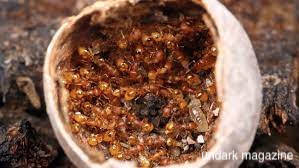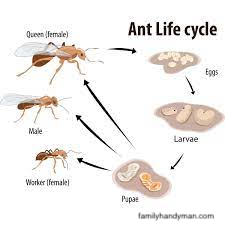Tiered Mentoring Program
Molecular Biology of Lifespan in Acorn Ants
Dr. Richard Londraville
 We are looking for 1-2 students interested in helping us with a new line of research. Our lab has spent many years investigating metabolism and fat storage in fish. We are now looking to ask similar question in very different animals- ANTS.
We are looking for 1-2 students interested in helping us with a new line of research. Our lab has spent many years investigating metabolism and fat storage in fish. We are now looking to ask similar question in very different animals- ANTS.
An ant colony has individuals that take on different roles (castes) in the colony. The queen lays eggs, most of which develop into workers (females). The workers do most of the work of the colony- tending to the queen, tending to the young ants, defending the colony, and providing all the food and waste removal. The males don’t do much, except to mate with the queen for a short part of the season.
In several species of ants, there is a big difference in how long each of these castes live- and usually the queens live >20X longer than the workers. Given that the queens are very closely related to the workers (her kids), it is surprising that there can be such a big difference in lifespan with basically the same set of genes.
 We are starting some experiments basically aimed at ‘how do they do that?’. What is responsible for how some ants in a colony live LOTS longer than others in the same colony? This is at the very beginning- we have ants in the lab, but we are still figuring out how to best take care of them, and how to do the molecular analyses. There will be a bunch of trial and error.
We are starting some experiments basically aimed at ‘how do they do that?’. What is responsible for how some ants in a colony live LOTS longer than others in the same colony? This is at the very beginning- we have ants in the lab, but we are still figuring out how to best take care of them, and how to do the molecular analyses. There will be a bunch of trial and error.
You will learn basic research skills and molecular skills. You should have some flexibility in your schedule, but I don’t anticipate this will be more than ~6 hours per week effort.
